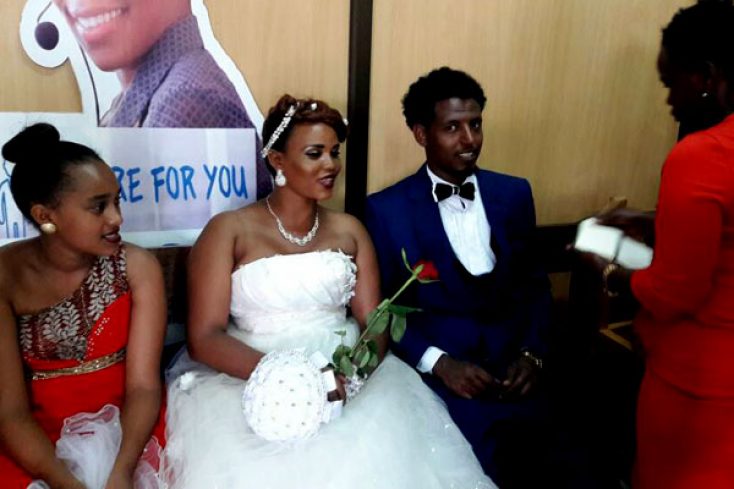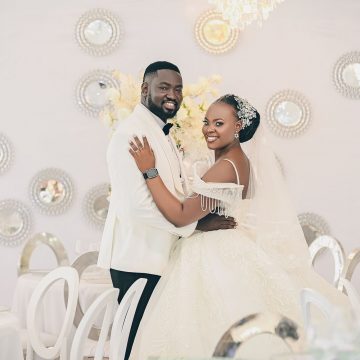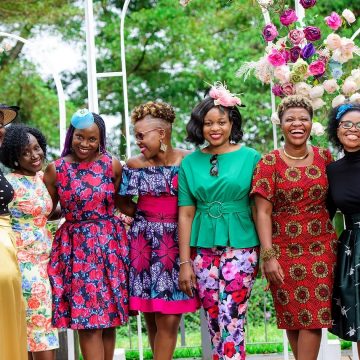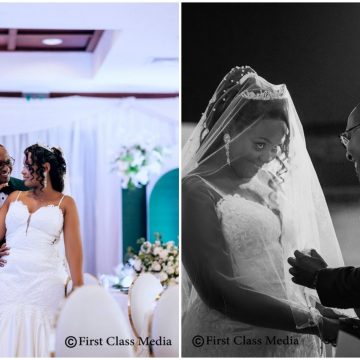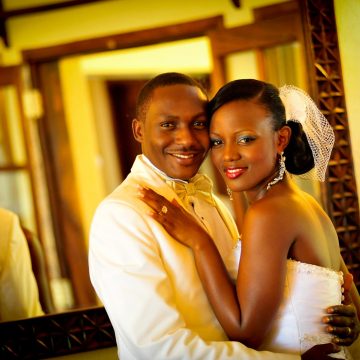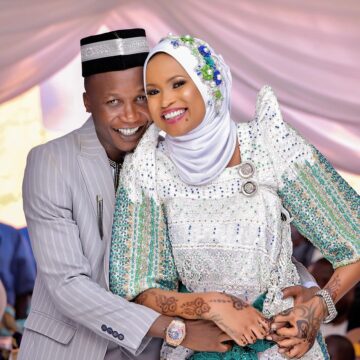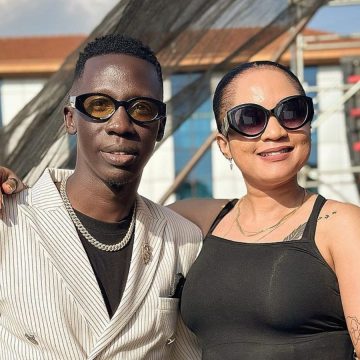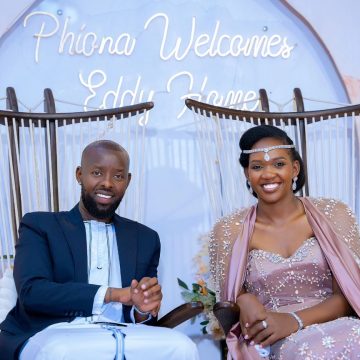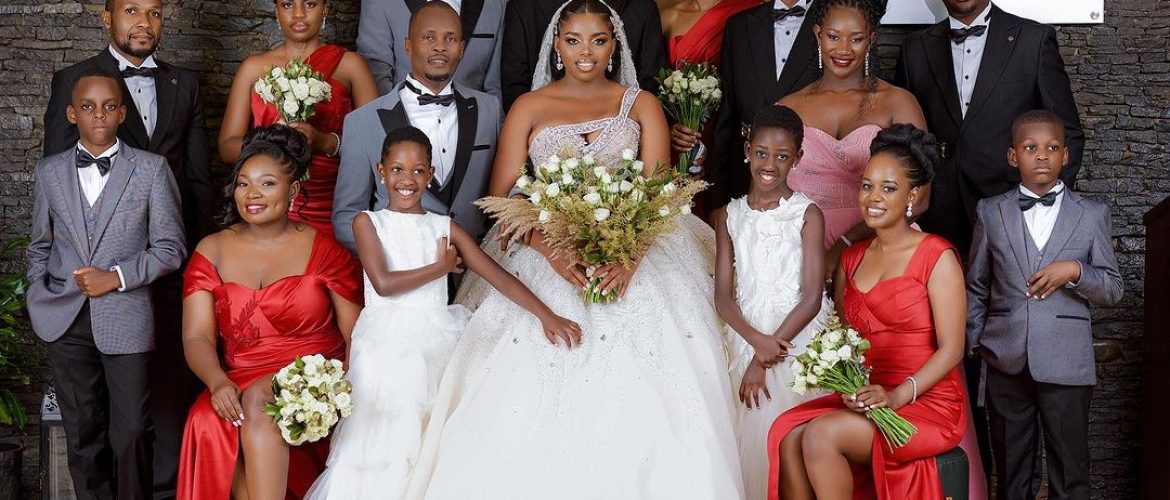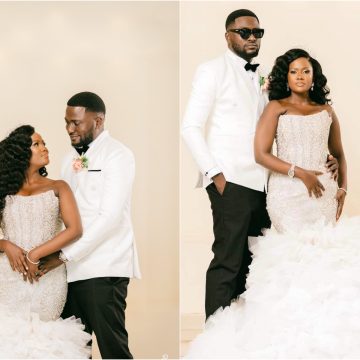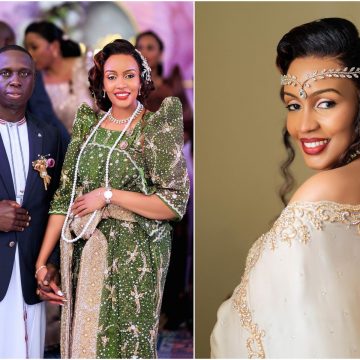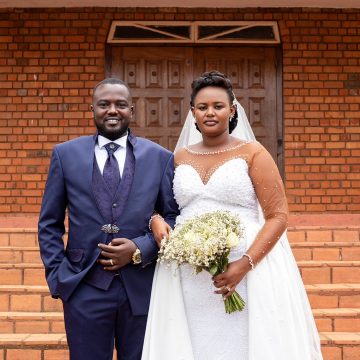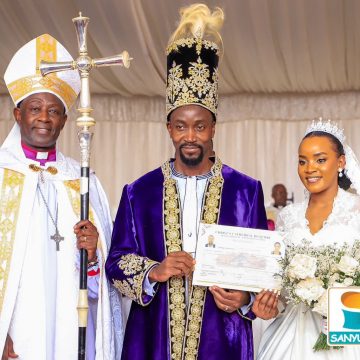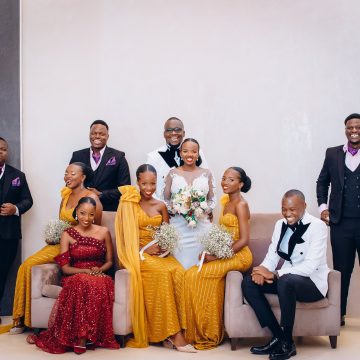It’s human nature to want the best for one’s wedding day; fancy, glitzy and exaggerated. YUDAYA NANGONZI from Observer.ug explores options for a simple but classy wedding under civil marriage.
A fairly cool Friday morning finds me at the Uganda Registration Services Bureau (URSB) offices in Georgian House, formerly Amamu House in central Kampala. I am here to witness how registrars conduct civil marriages.
The buzz around the reception area on the ground floor is about a stunning bride and entourage of maids, relatives and friends. Giggles, selfies, and photo jiffies are ongoing as we all wait to use the elevator to the fourth floor where the civil registration department is located.
After a few minutes, the bride loses her patience.
“We are going to be late. Let us use the stairs,” she says as she spins to show off her orange Cinderella wedding gown.
The group hurriedly walks up the staircase. At times, when you are going up in an elevator, you hear a sound as if the cables lifting it have some difficulty. This one is cool and fast to the fourth floor where the group has not yet arrived. The notice board for marriages is fixed to the left, about 10 metres from the main entrance.
On each of the notices, the registrar of marriages writes:
“I give you notice that this marriage is intended to be had within three months from the date of this notice between me, and the undersigned and other party named in the notice.”
As I settle for one of the chairs, the bride and her group join the groom and his best man amid ululations.
Shortly, deputy registrar general Jane Okot p’Bitek Langoya, calls out the next couple with their two witnesses to join her in office for a briefing. I follow since I am allowed to be part of the marriage sessions today. This fairly young couple is accompanied by their parents, uncle, son and daughter who are elegantly dressed as page boy and flower girl, respectively.
Langoya asks the couple to check their marriage certificate, fixed with a URSB logo and bar code reader, for errors. When they nod that everything is all right, she asks: “Did you come to this marriage willingly?” The groom says yes, while the bride excitedly adds “more than willingly.”
Langoya reads out various sections of the Marriage Act governing civil marriage. The groom closes the door for privacy but Langoya objects.
“I can be penalized for solemnizing a marriage with closed doors. My dear, the Marriage Act states clearly that this function must be done with open doors. This implies that we may be having this brief meeting but someone has a right to walk in freely and stop me from wedding you,” Langoya explains.
The groom quickly asks one question.
“After taking our vows, does the law allow me to kiss my beautiful wife?” Langoya laughs but responds: “There is too much love here. A kiss that will not embarrass me, little children and our parents herein is very okay.”
THE MARRIAGE ROOM
Next to the deputy registrar’s office is the marriage room. Its large glass door is wide open. It has wooden pews and a special white chair for couples. Langoya sits in a single chair in front of the marrying party.
The groom, a Muslim, goes first to take his vow with a Qur’an. The bride uses a Bible with tears of joy rolling down her round cheeks. Her emotions are shared by her mother who also tears-up but smiles throughout the entire session. Langoya later reads Section 26 of the Marriage Act:
“Know you that by the public taking of each other as man and wife in my presence, and in the presence of the persons now here, and by the subsequent attestation of that taking by signing your names to that effect, you become legally married to each other, although no other rite of a civil or religious nature shall take place, and that this marriage cannot be dissolved during your lifetime, except by a valid judgement of divorce; and if either of you before the death of the other shall contract another marriage while this remains undissolved, you will be thereby guilty of bigamy and liable to punishment for that offence.”
Indeed, Section 47 of the law emphasizes that “any person who personates any other person in marriage, or marries under a false name or description, with intent to deceive the other party to the marriage, commits an offence and is liable on conviction to imprisonment for a period not exceeding five years.”
The couple exchange rings and sign their marriage certificate. In just 10 minutes, the ceremony is done. It is now a photo moment for the couple as Langoya moves out to brief the next couple.
SIMPLE AND AFFORDABLE
In Uganda, four marriages are recognized; Civil, Muslim, Customary and Hindu. Church weddings fall under civil marriage since they are licensed by government. Charles Nsimbi, the manager for civil registration at URSB, says church ministers become registrars under the Marriage Act.
“The only difference is that the law allows churches to celebrate marriages following their customs and norms. So, if you go to a church that is not licensed, you have not celebrated a legal marriage,” Nsimbi says urging couples to ensure that they are wed from licensed churches which also file marriage returns to URSB monthly.
Nsimbi wedded in church but speaks highly of marriage before the registrar.
“When you go to a government office, compliance is automatic unlike in church where you need to do a lot of underground work about its license and filing of marriage returns, among others,” he says.
“If you don’t want the prestige of walking down the aisle and creating financial strain onto yourselves under the guise of pleasing family and friends, marriage in a government office is ideal.”
URSB’s recent count of licensed churches placed the figure at 2,580. Of these, Nsimbi says, less than 100 file marriage returns yet it is estimated that there are more than 10,000 churches countrywide with many wedding couples illegally. URSB statistics indicate that in 2015/16, 817 faith-based organisations (FBOs) were licensed to celebrate marriages.
However, despite a growing number of FBOs, only 232 were licensed in 2016/17. At the registrar’s office in Kampala, at least 1,420 marriages were solemnised in 2015/16 compared to 1,175 in 2016/17.
URSB charges Ugandan and refugee couples Shs 260,000 while foreigners pay $210. This money covers the marriage, notice, registration and certificate fees. Every week, about 35 couples take their vows at the Kampala civil registration department, an increment from about 20 couples few years ago.
For couples that intend to be wed on Saturdays or Sundays or choose a specific venue for their wedding on weekdays, they pay for a special license at Shs 300,000 where one of the applicants is Ugandan or a refugee and $200 for foreigners. With special licenses, one can take their vows from just about anywhere.
Despite the fact that he is a practising Catholic, Nsimbi acknowledges that civil marriage is a lot quicker than the bureaucratic tendencies of churches, including pre-wedding counselling sessions, demands for baptism cards, etc
“For us, even when you have not done a customary marriage, we go ahead and wed you as long as both of you consent to the marriage, are not party to any existing marriage and above 18 years. However, some couples also first perform their customary marriage and later come here to wed,” Nsimbi says.
He adds that the most interesting thing here is that couples are not limited by a dress code. All one needs is to be decently attired. He has memories of his niece who solemnized her marriage in jeans at URSB.
As this interview proceeds, Langoya weds another couple. The bride is clad in a casual floral dress, simple African craft sandals with a scarf around her neck while the groom dons a sleeveless shirt and black trousers.
Couples wishing to dress up from URSB offices are also allowed to freely use their lavatories located on the same floor. Nsimbi says while Ugandans are embracing civil marriage, the biggest numbers of couples who wed at URSB are Eritreans, Ethiopians, Rwandese and Congolese. There are also many couples from Sweden, Norway, Belgium, German, USA and the United Kingdom.
STIGMA?
But there is still stigma against civil marriage. Sweden-based musician Ronald Ssemawere a.k.a Guvnor Ace, can testify to this. On August 20, 2015, his marriage to then 68-year-old Mona-Lisa Larsson raised people’s eyebrows.
“People criticised me. The media concocted stories but many did not know what was behind our wedding,” Ssemawere told The Observer. “Our plan was that Lisa helps me come to Sweden and I respect her for that. We did not get married out of love. We agreed to accomplish certain projects which have all progressed very well.”
Now a cashier in a music instrument shop, 25-year-old Ssemawere is dating another Swedish lady after they agreed with Larsson to divorce in August this year.
“I have no intentions of marrying someone soon. If I am to do a wedding, it will be out of love and will be done in a religious way,” he says, displaying a picture of his current girlfriend.
Phillip Kalibbala, an assistant registrar at URSB, agrees that he has seen enough of the stigmatisation.
“We come from a traditional background where marriage is only understood to be performed in church or a mosque. So, some people and faith-based organisations think wedding in a government office is a contract marriage,” Kalibbala says.
“[However], marriage is all about the heart of the two people no matter where it is performed as long as it is legal. Why affix stigma to such people?”
Whenever he interviews couples intending to marry, he encourages them to involve their parents for them not to assume that “civil marriage is for persons who don’t respect cultural norms.”
He cites a Ugandan couple that showed up with their parents who remained uncooperative and sad throughout the entire session.
“Parents should not think that civil marriage is rebellious. Unknown to some Ugandans, a certificate issued by URSB is so powerful that everyone should desire to get one because it will help you far beyond the boundaries of this country,” he says.
He commends Congolese who usually turn up in huge numbers, singing, and throwing petals allover. This, he believes, is a sign of appreciation and blessing the couple’s decision.
“If you are in a relationship and it is more than a one-night stand; involves children and property, you are better off legalising that relationship. If you can register a Sim card, why not a relationship?”
H/T

